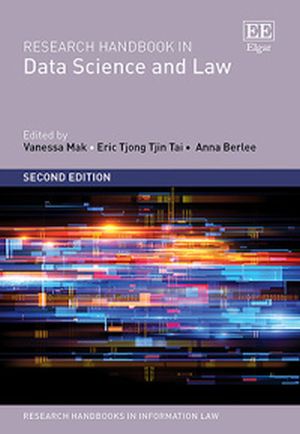
This thoroughly updated Research Handbook examines the recent exponential growth of data use in society and its implications for legal research and practice. It explores contemporary research in the field of data science, as well as the operationalization of data for use in healthcare, urban governance and smart household devices, among others.
Considering the emergence of Data Science and Law as a new legal discipline, the editors analyze pressing legal questions accompanying the rise of data-driven technologies. Drawing on comparative perspectives, this revised edition examines the possibilities and limitations of the current legal framework, investigating whether new regulation is needed to respond to problems raised by data science, and detailing the potential ethical issues arising from the use of data. It also evaluates the evolution of the regulation of artificial intelligence, generative AI and large language models, and EU legislation concerning consumer contract law and data protection.
The Research Handbook in Data Science and Law is an essential resource for students of information and media law, internet and technology law, and research methods in law, as well as legal scholars and practitioners in the field. Data scientists seeking to further understand the law surrounding the field will also find this Research Handbook invaluable.
‘In our digital world, should we rethink traditional legal concepts, review the adequacy of protective consumer regulation, and ensure that AI is fair? Should law’s governance, legal practice and research itself make use of data science? This Research Handbook offers the perfect opportunity to explore these important questions.’ – Roger Brownsword, King’s College London and Bournemouth University, UK